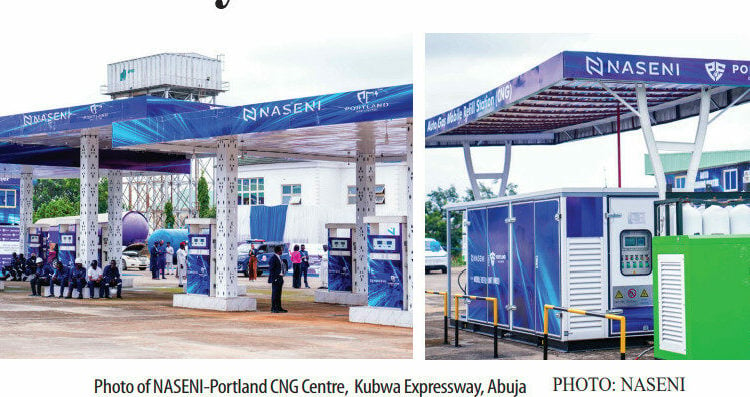The National Agency for Science and Engineering Infrastructure (NASENI) has in recent times strengthened its capacity for productivity with varied collaborative efforts with different agencies, ministries, technology parks, international organizations, Nigerian manufacturers and local industrial centres to expand Nigeria’s industrial development.
The Agency has been at the forefront to drive the Renewed Hope Agenda of President Bola Tinubu administration to reposition Nigeria within the global map of industrialization that is replete with mass production of indigenous products of different varieties and quality purposely built for commercialization to ensure global competitiveness.
Analysis of these collaborative efforts depicts result-oriented agenda as physical products have been manufactured by the Agency in collaboration with strategic partners.
On Monday, August 11, 2025, Nigeria’s quest for the manufacturing of indigenous products received a massive boost when the Minister of Industry, Trade and Investment, Dr. Jumoke Oduwole paid a working visit to NASENI to inspect facilities at the Agency and open more channels of collaboration.
Some of the NASENI’s facilities which the Minister toured included the NASENI Innovation Hub, NASENI technology site at the Abuja Technology Village, Pyakasa village, Airport Road; the NASENI-TROMENT facility and another facility at Abuja Technology Park, Idu Industrial Area respectively.
The visit was part of a broader effort by the Ministry to assess local industrial capacity and see high-impact projects that are accelerating the Federal Government’s ‘Nigeria First Policy’, an agenda focused on boosting domestic production, encouraging local consumption, and creating jobs through industrialisation.
As part of the Agency’s public-private partnerships (PPP), NASENI opened another channel of collaboration with Imose Technologies Limited to boost domestic computer manufacturing, aimed at launching Nigerian-made laptops and tablets under the NASENI brand.
The goal is to reduce reliance on imported electronics, enhance technological self-sufficiency and create jobs. NASENI provides infrastructure and policy support, while Imose handles manufacturing, focusing on principles of collaboration, creation, and commercialization (3Cs) to establish Nigeria as a regional technology hub.
Key aspects of the NASENI-Imose partnership include locally produced devices with the introduction of the NASENI Zedon X-Pro laptop (14-inch) and a 10.5-inch tablet. The project aims to foster technological independence, boost the local economy, create jobs, and reduce Nigeria’s dependency on imported devices.
The devices are designed to serve students, professionals, and various institutions within Nigeria and the partnership aims to evolve towards higher levels of domestic content and local sourcing of components, potentially transitioning from semi-knocked-down (SKD) to completely-knocked-down (CKD) assembly.
Also, NASENI entered into partnership with the Abuja Technology Village (ATV) Free Zone Company to develop 300 hectares of land dedicated to factories, technology companies, and innovation-driven manufacturing plants to boost the national economy in order to foster industrial growth and technology transfer.
NASENI’s partnership with the Abuja Technology Village will develop the designated lands into facilities for technology firms, manufacturing plants, and research institutions, aiming to accelerate the commercialization of Nigerian innovations and boost economic transformation by attracting both Nigerian and foreign investors.
Similar to Egypt’s Smart Village in New Cairo, NASENI’s partnership with Abuja Technology Village will ensure Nigeria is not left out of the much touted Fourth Industrial Revolution (4IR), where Artificial Intelligence (AI), Internet of things (IoT), Blockchain, and all modern forms of technologies shaping the global arena are domiciled.
Presently, NASENI through large-scale collaborative efforts developed over 40 market-ready products that are now being commercialized. With the collaboration with Abuja Technology Village, these innovations will be expanded upon for mutual benefits through investment incentives, and a joint vision for technological advancement of Nigeria and the economy.
The partnership will not only integrate science, innovation, and technology, with a focus on supporting local talents and products but will also serve as a base to empower youths, foster innovation, and drive the development of a $1 trillion tech-driven economy.
Furthermore, on August 13, NASENI deepened its collaboration with Portland Gas Limited to provide access to Compressed Natural Gas (CNG) at affordable prices and premium availability to Abuja residents. The facility has CNG Conversion Centre, Training Centre, and CNG Gas Refill Station and is part of the ongoing commitment to the Renewed Hope Agenda of the President. This Daughter Station launch is to help drive the country to the path toward clean energy transition and diversification for a sustainable and vibrant economy.
Launching the facility in Abuja, Speaker of the House of Representatives, Tajudden Abbas, who was represented by Alexander Mascot, a Member of Parliament representing Aba north and South Federal Constituency, Abia state, said the launch will move the nation “towards clean, affordable and more secure energy for Nigerians.”
He said further that “Energy to Nigeria is like blood that fuels life, productivity and growth and without it economies slow, industries falter and households suffer.”
On 8th May this year, NASENI launched the National Asset Restoration Programme in Maiduguri, Borno State, as one of sundry initiatives and timely interventions to revive livelihoods, food security, and self-sufficiency. NASENI embarked on this historic journey in December 2024 through a strategic collaboration with its technical partner, the Machine and Equipment Corporation Africa (MECA).
The goal is to restore to life idle government and private assets; in this case, tractors that had long fallen into disuse but held immense value for our agricultural economy. NASENI’s asset recovery programme is a well-thought and strategic roadmap, aimed at accelerating Nigeria’s agricultural productivity and to grow its industry.
It aims to increase investments in this critical sector to boost the country’s GDP, increase revenue, and create jobs through targeted interventions and reforms. Through the National Assets Recovery, Refurbishment and Redeployment Project (Asset Restore Project) NASENI unveiled 375 tractors belonging to the Borno State Government that have been fully refurbished and commissioned by Vice President Kashim Shettima recently.
The plan emphasized building strong centres of creativity and skilled development. This initiative has been the brainchild of the Executive Vice Chairman of the agency, Khalil Suleiman Halilu, who has made enormous efforts to transform the Nigerian agriculture landscape through industrial and mechanized capacity.
In December 2023, the Agency signed a Memorandum of Understanding (MoU) with the Indonesian company, PT Saputra Global Harvest to establish a coal-based fertilizer plant in Nigeria to support agriculture production and to boost food security.
This was the crux of the signing ceremony of a production license agreement between the agency and regarding technology to produce coal-based fertilizer in Abuja. For decades, farmers have struggled with high fertilizer costs driven largely by import.
The new project seeks to turn locally available coal into high-quality fertilizer, cutting costs and making the product more accessible to farmers. The expected outcome is increased yields, higher incomes for farmers, and a stronger foundation for food security.
The Executive Vice Chairman (EVC) of NASENI, Khalil Halilu, in his remarks during the agreement signing with Saputra Global Harvest, said “With agriculture we can make a massive dent on unemployment in Nigeria, while also earning foreign exchange that can positively transform the fortunes of the economy.”
And to enhance the security of the country, NASENI collaborated with Nigeria’s Ministry of Defence and the Defence Industries Corporation of Nigeria (DICON) in August 2024 to sign a Memorandum of Understanding (MoU) for the establishment of an arms and ammunition production factory in Nigeria.
This partnership aims to reduce the country’s reliance on foreign imports for military hardware, foster self-reliance through indigenous innovation, and boost the local economy. The collaboration also seeks to create job opportunities and support the broader goal of national security.
As NASENI pushes the trajectory of Nigeria’s industrialization agenda working with national and international partners, the Agency is bent on transforming the country’s industrial base and emerging small, medium and large enterprise to mass produce technologies, capital goods and innovations that would be accessible , available and affordable to average Nigerian.





